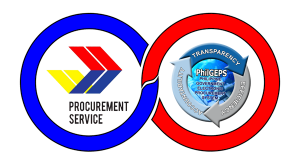Where do you think the financial industry is headed in the coming years? With this article, I’ve tried to lay out some trends that will shape the future, and provide you with some useful tips for investing; micro-investing in particular. The financial industry is going through a sort of “revolution” in that many of the old standbys are being challenged as new players emerge. My hope is that after reading this article and doing a little research on your own, you’ll have a clearer picture of where we’re headed and what will shape our future.
Table of Contents
What is a Micro-Investment?
Why should businesses invest?
What makes a business marketable?
Understanding the Financial Industry in eCommerce
Key Points
What is a Micro-Investment?
Micro-investing isn’t a new concept. In fact, it’s been around in some form or another since the dawn of investing. One of the most common mediums for micro-investing is through S&P (“standard and poor’s) 500 funds (traditionally). These funds allow you to invest at as little as $10 per month and still have access to stocks like Facebook, Disney, and Google. It makes even more sense when you consider that these companies are not only leaders in their industry but are also household names.
Micro-investing has changed the way people do their investing. Thanks to digital technology, an opportunity to invest in any business has become a reality. With online platforms such as Local Bitcoins, eBay and stocks, one can purchase almost any kind of goods or services with digital currency such as Bitcoin or Litecoin.
Why should businesses invest?
It seems that a new financial revolution is happening right now. At the forefront of this revolution are eCommerce investments. In 2015, we saw more than $15 Billion in venture capital being pumped into eCommerce startups. This number is expected to grow even higher in 2016. The industry is growing rapidly and expert investors are taking notice. So what exactly is micro-investing? Are you better off putting your money in eCommerce stocks or starting your own online business? Are you too late to the game?
It is an important part of business to understand that investment is an integral part of it. You need to build your infrastructure and systems as a company grows. Right from the start, you need to work toward making your business grow faster so that it can sustain higher growth in number of customers and market share. Growth is one of the primary drivers that can help an organization survive. To grow, a company needs to invest in itself. The challenge is to make a smart investment on the right things.

What makes a business marketable?
It’s no secret that the economy is in a precarious state. All of us are affected by the issue of unemployment, inflation and diminishing wages. In a world where jobs are being shipped overseas and small business owners are struggling with cash flow, it’s important to understand what makes a business marketable and how we can be better entrepreneurs.
Regardless of the industry you’re in, we all get caught up in the latest buzzwords and buying trends. The whole process of marketing a business can be confusing for both new and seasoned entrepreneurs. Whether it’s spending money on PR or social media, or pitching to investors based on an idea that seems crazy — something so simple like understanding what makes a business marketable could make all the difference…
Knowing what makes a business marketing is essential for your success in the new economy. A great entrepreneur isn’t just about knowing how to survive tough economic times, but also how to capitalize on opportunities and how to develop an overall strategy that makes sense for reaching the next level in your career.
The top 3 definitions…
- High Demand
To produce a commercial idea, there must be significant public interest and demand. The greater the demand for a good or service, the greater the potential revenue for a company. Show how the general public, or a sizable target audience expected to be regular customers generating a continuous stream of income, will find your proposal useful, valuable, or interesting.
To find out if people are interested in buying or using your product or service, as well as what they find appealing and unappealing about it, you might try conducting surveys and focus groups. Numerous positive comments suggest marketability, but keep an eye out for other elements.
- Appropriateness and Value to Customers
The average consumer won’t spend money on a good, service, or concept that is complicated to use or comprehend. A business concept aimed at the general public must prioritize ease of use and convenience for customers. This means that the product, service, or other company idea must be flexible enough to adapt when consumers’ tastes, preferences, and needs change over time.
For your idea to constantly be fresh and relevant, make sure it has room to develop and change. Examples include converting foods into snack-sized servings to appeal to moms who are busy or putting more of an emphasis on companies and products to alter policies and package designs as the globe becomes more environmentally friendly.
- Affordable
It is essential to be able to provide fierce competition for other companies of a different and comparable kind in terms of both quality and pricing. Find out if your product or service can be mass produced or delivered at a reasonable cost per unit while maintaining quality. This guarantees a sizable profit and affordable costs for customers. By giving customers something that other companies don’t, you can further create competition.
A product or service must be both marketable and promotable. This entails developing a comprehensive marketing strategy centered on the promotion of the good or service to raise awareness among the general audience. Signage, magazine or newspaper ads, television commercials, and other methods can all be used to achieve this.
To stimulate purchases, concentrate your advertising efforts on your target market and highlight the advantages of the business concept. If a product, service, or creative concept cannot successfully pique the attention or raise the consciousness of potential customers through advertising and other forms of marketing, it is time to start over.
When the economy is doing well, brand recognition is critical, but when the economy is doing poorly, it becomes even more crucial. When things are awful, you want to own these kinds of brands. Everybody can profit from the markets when conditions are favorable. However, when the economy is struggling, everything shifts back to those recognizable, rapidly expanding companies that you want to own.

Understanding the Financial Industry in eCommerce
E-commerce is now at the forefront of retail thanks to COVID-19. Prior to the pandemic, the global rate of growth for online sales was a consistent 4.5 percent each year. However, in the recent years since the pandemic, it has seen a significant shift in the retail environment, primarily as a result of public health-related movement restrictions and a growing consumer inclination to avoid physical storefronts. In general, businesses who were able to adapt to digital platforms prospered while conventional merchants with poor online strategies declined, with numerous well-known ones declaring bankruptcy.
The global eCommerce industry is one of the most rapidly growing sectors in the world. Forbes recently estimated that the eCommerce industry will reach $2 trillion by 2022, making it the largest retail sector in the world. As a result, there’s been an increased influx of investors looking to put their money into this promising industry. Micro-investing has become one way to invest in this sector without becoming a vendor on these eCommerce platforms.
The financial sector’s environment is competitive and characterized by rapid change. E-commerce has had a transformative impact on how it affects banking and financial institutions, in addition to how it affects retail. With the entire range of online services, trips to the bank are no longer necessary. Online banking and shopping’s accessibility, portability, and convenience are seriously disrupting the financial sector. Additionally, blockchain technology is paving the way for more sophisticated digital transactions. Attorneys at Chambliss have successfully guided our clients through this transition.
Businesses that have online stores have been able to benefit, while others without have been playing catch-up and frantically attempting to re-engage their audience. The transition to e-commerce was a setback for many firms, but many well-known ones were able to overcome it and are now starting to reap the rewards in terms of sales.
Due to the advancement of blockchain technology’s ability to digitally handle complicated transactions, online retailers will be able to sell a greater variety of goods, such as financial services and real estate. Online retailers should sell complete solutions and provide relevant bundles of goods and services at deeply discounted rates as part of the megatrends. Retailers should make significant investments in AI-driven platforms and blockchain technologies in order to benefit from the upcoming 95% global economy of online shopping.
Speaking of the trillion-dollar industry – eCommerce, there’s one promising company in the Philippines that specializes in digital procurement. The company boasts of many features that helps sellers and buyers alike, transact through seamless payment channels and online catalogs. It’s called Shoppable! The company is built-in with state-of-the-art technology, making it easy for all its users to conduct transactions.
Here’s why you should join Shoppable…
- It’s FREE – It’s free to start selling on the Shoppable platform. As long as you’re a legally registered business, you’ll be able to list products for free on Shoppable. You only pay a commission if an item sells on the platform, and you get paid.
- Expand your Customer base – Through Shoppable, you’ll reach thousands of new customers for free. Think of Shoppable as your marketing arm that you only pay when you have a sale.
- Get your eCommerce Store – Increase sales by digitizing your product catalog and reaching customers worldwide. Print catalogs are dying, costly, and not environment friendly – digital is the future. Sellers can get their eCommerce store on Shoppable Business that can be given to any client.
- Procurement Technology – Enable your customers to pay you online through Bank Transfers, Credit Cards, Over-the-Counter Payments, Recurring Payments, and more. Easily track and manage orders, payments, and shipping through the Shoppable platform.
- Shipping Technology – Shoppable has integrated directly with multiple shipping couriers, enabling you to provide same-day to next-day delivery to your customers.
- Compliance – Sales invoices and 2307’s required? Don’t worry. Shoppable has got you covered! The platform keeps sellers fully compliant, never worrying about missing documents.
- 3PL & Fulfillment Services – Need additional manpower? Shoppable can provide you with warehousing and fulfillment solutions so you can expand your brand to different locations enabling you to get products delivered faster to your customers.
- Real Sellers, Real Buyers, and Real Products only – We vet and interview sellers that join the platform, so you will be assured that all of the products and transactions are authentic and legitimate.

Key Points
The eCommerce industry has been growing at a rapid pace for decades. We have seen the phenomenon of fintech make its way into almost every sector of the world economy through projects like Bitcoin, Ethereum and more. This means that Micro-Investing in the eCommerce market could be one of the best ways to expand your wealth over time.
Being an entrepreneur is no longer just about making money and providing the service or product you are offering. It has become a new form of work that requires great planning, marketing skills and time management. With the advent of technology and the internet, the eCommerce industry has shifted from conventional marketing strategies to digital marketing strategies. These digital strategies have contributed to the increase in global sales and profits to $766 billion by 2017. The eCommerce industry has been recognized as one of fastest growing industries in terms of revenue generation. It is expected that by 2020, over $1 trillion will be generated in this field.
Using eCommerce to adapt to the changes of retail and shopping is an advantage that allows you to shift your business towards the trends. Joining an eCommerce platform like Shoppable can help you keep up with the rapid growth in the industry. Drop by and say hello at [email protected] or click here to get a free consultation when setting up your business in eCommerce.









